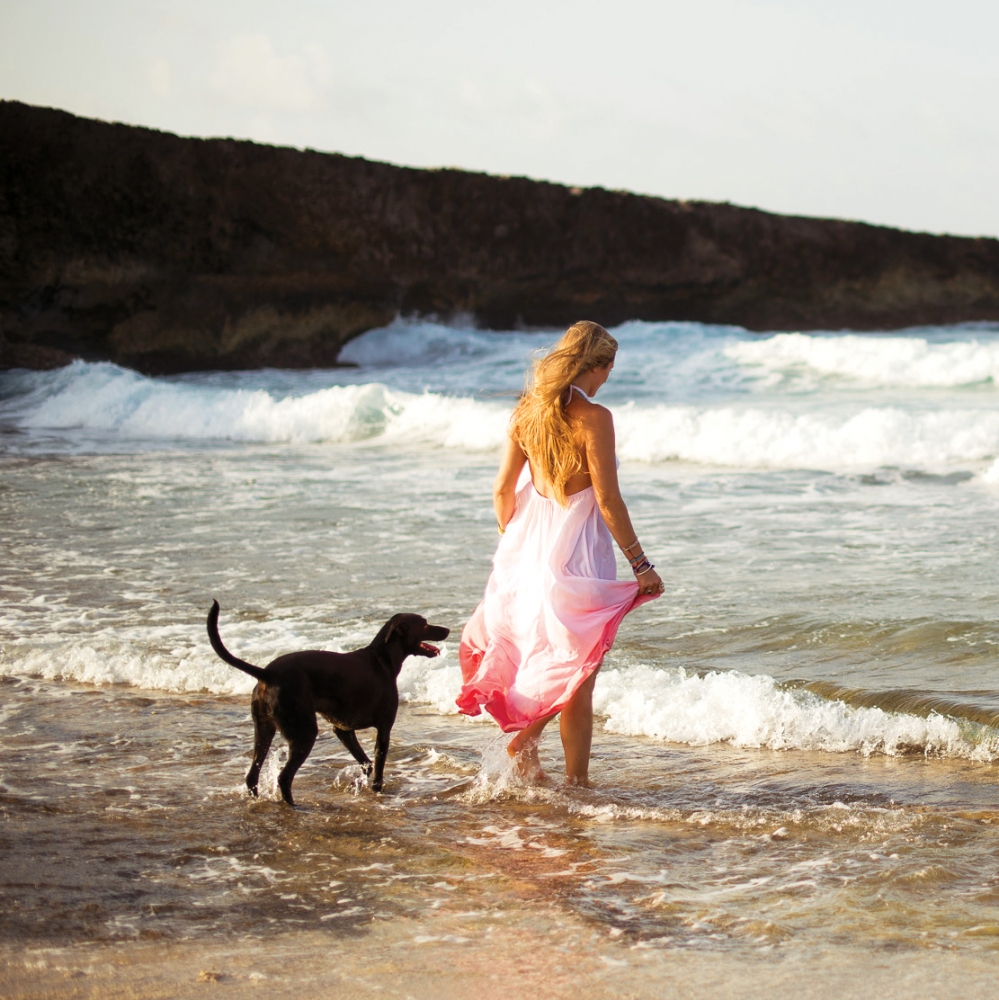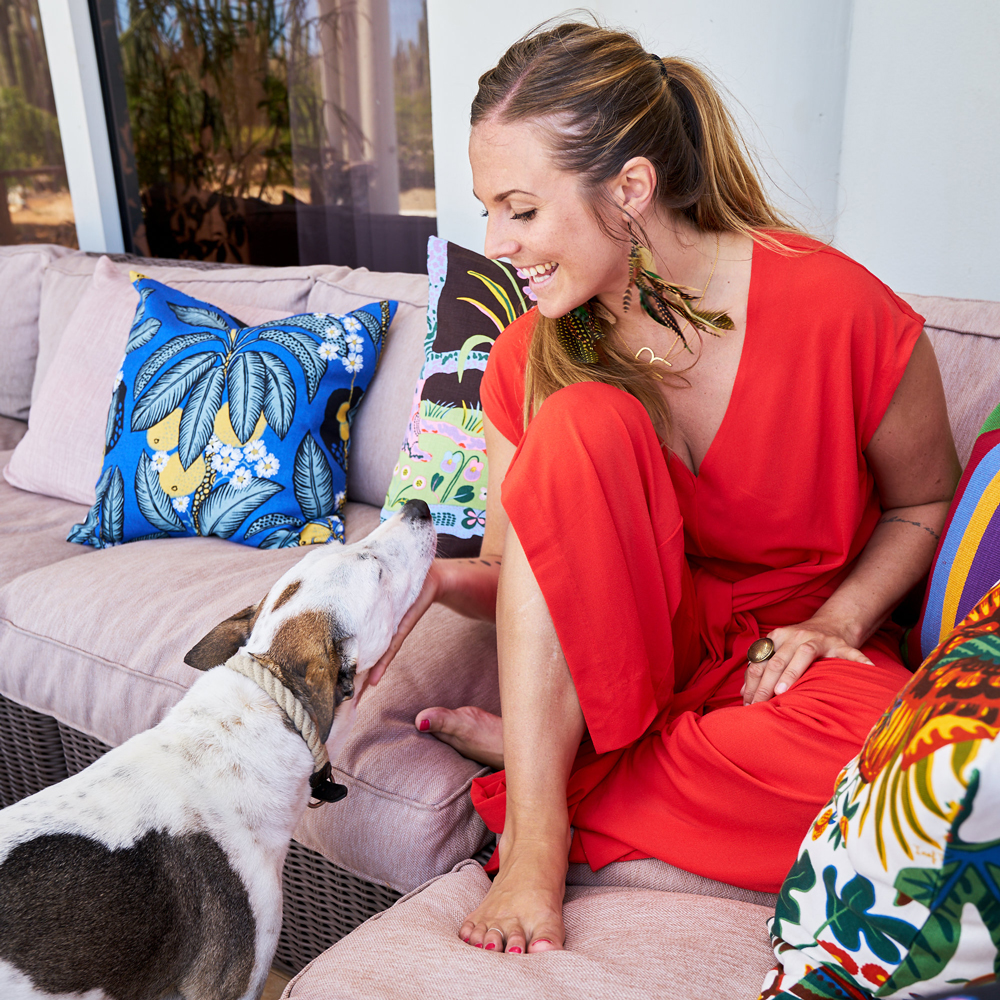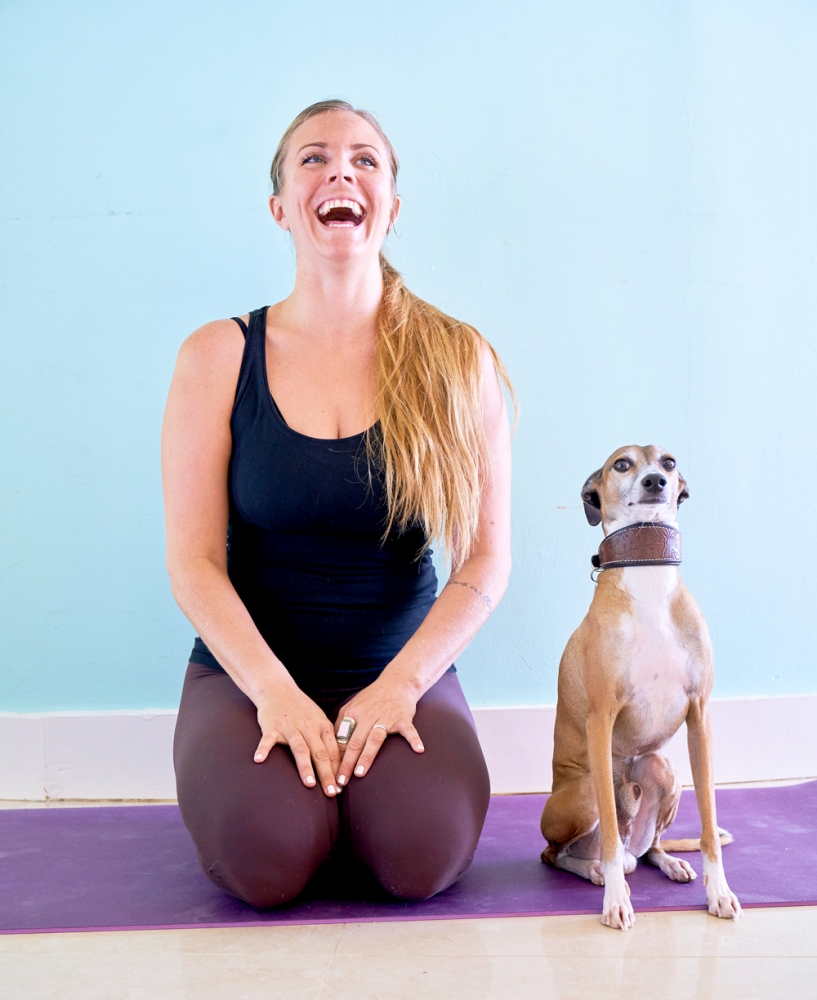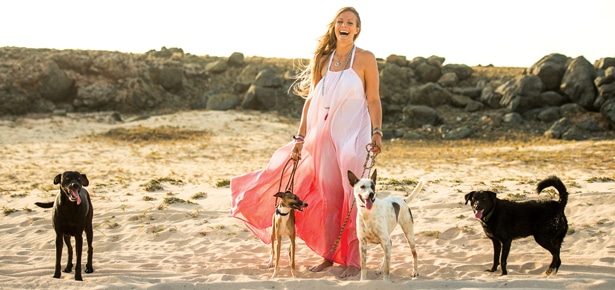
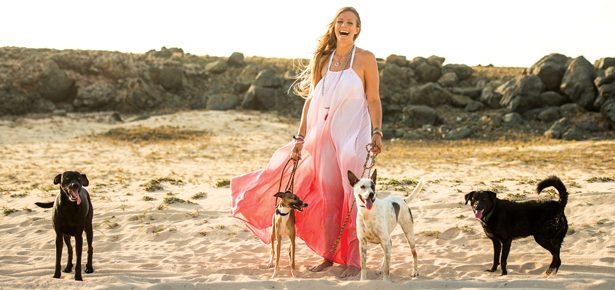
To Love and Let Go by Rachel Brathen
How to heal your heart after the loss of a dog
To love and let go—it’s the single most important thing we can learn in this lifetime, says Rachel Brathen, the New York Times bestselling author of Yoga Girl and world-renowned yoga instructor who teaches and leads retreats across the globe.
Only, what if you don’t want to let go? What if you feel like your heart has been broken? And what if what was lost was a canine best friend, and the world seems to be expecting you to brush yourself off and buck up—it was “just a dog,” right?—when you’ve been brought to your knees by grief? Rachel has been there.
Her new book, To Love and Let Go, is a moving memoir of love, loss, and gratitude, inspired by three years of trials, including the death of her soul-mate best friend, her grandmother, and her beloved dog Pepper. Of these losses, it was Pepper’s passing that she found most devastating, an experience shared by many dog people, and one that can make us feel ashamed. Rachel’s honesty normalizes the experience.
“Pepper’s death threw me in a way I wasn’t prepared for,” Rachel shares in her book. “Everything I thought I’d learned in dealing with the loss of Andrea [my best friend], was a lie. I feel like I’ve learned nothing. It pains me deeply to admit this, so I don’t tell anyone, but it’s the truth: Pepper’s death hurt me more than Andrea’s. I can’t tell anyone, because Pepper was a dog and Andrea was a human being, but Pepper was my baby and I failed him and it’s added a level of pain to my grief that I’m not in any way equipped for. Andrea was an adult—she drove the car. I was responsible for Pepper. He was counting on me to keep him safe and I didn’t. Pain is worse when it comes with guilt.”
Ah, the guilt, so deeply relatable. We ask ourselves, could I have saved my dog? Did I wait too long? Was it her time? If you’ve ever helped a dog pass, chances are you’ve spent countless sleepless nights asking yourself these questions. Rachel has been there too.
“There is a second truth that I also didn’t speak out loud, because maybe I couldn’t bear to hear the words. I felt like I killed Pepper. Objectively, I knew I wasn’t solely responsible. He had seen so many veterinarians and no one knew what was wrong, so how could I be? But I was his mom. I should have known. If I hadn’t been so preoccupied with other things, if I hadn’t been so self-absorbed, I would have known.”
Added to this is the shame of having too big of a reaction—too much grief, too much heartbreak, too much falling apart for the passing of a dog. Rachel knows this too.
“It’s been a month now and he was only a dog and people tell me to move on—they don’t understand how my life has ended because my dog died. I guess from the outside, in light of Andrea dying and then my grandmother, it’s hard for people to understand why now, suddenly, I’m losing it. And it’s clear that I am. I can’t keep myself contained anymore. I keep bursting into tears at gatherings, at the beach with our friends at sunset, when I’m teaching yoga, at the grocery store waiting to pay for vegetables. I don’t care. I’ve kept myself together all year and I just can’t do it anymore.”
Ultimately, though, Rachel’s heart heals, and her experiences inspired her to share her journey and never-ending practice of loving hard and letting go so that she can help others. She shares this advice with Modern Dog:
“The death of your dog can be soul crushing, sometimes even more so than the loss of a friend or family member,” Rachel says. “I connected with Pepper on such a deep level—deeper than I connect with a lot of humans. And when you lose a pet, society doesn’t really accept a long mourning period for that. A lot of people think you should move on quickly. I think that was why it was so hard for me to lose Pepper—I didn’t have a chance to really feel it.”
“If you are completely heartbroken by the loss of your dog, allow yourself to feel it and allow yourself to mourn! Don’t minimize your grief,” she continues. “Take however long you need and don’t worry about how other people think you should be dealing with this loss. If the love was big—and with our dogs it’s always huge!—the pain will be big, too. Talking to people who are going through something similar is helpful, too. Only a person who has lost a dog will ever know the pain of that kind of loss. So… Be kind to yourself. Feel. It’s the only way to heal.”
Join the newsletter and never miss out on dog content again!
"*" indicates required fields
By clicking the arrow, you agree to our web Terms of Use and Privacy & Cookie Policy. Easy unsubscribe links are provided in every email.
